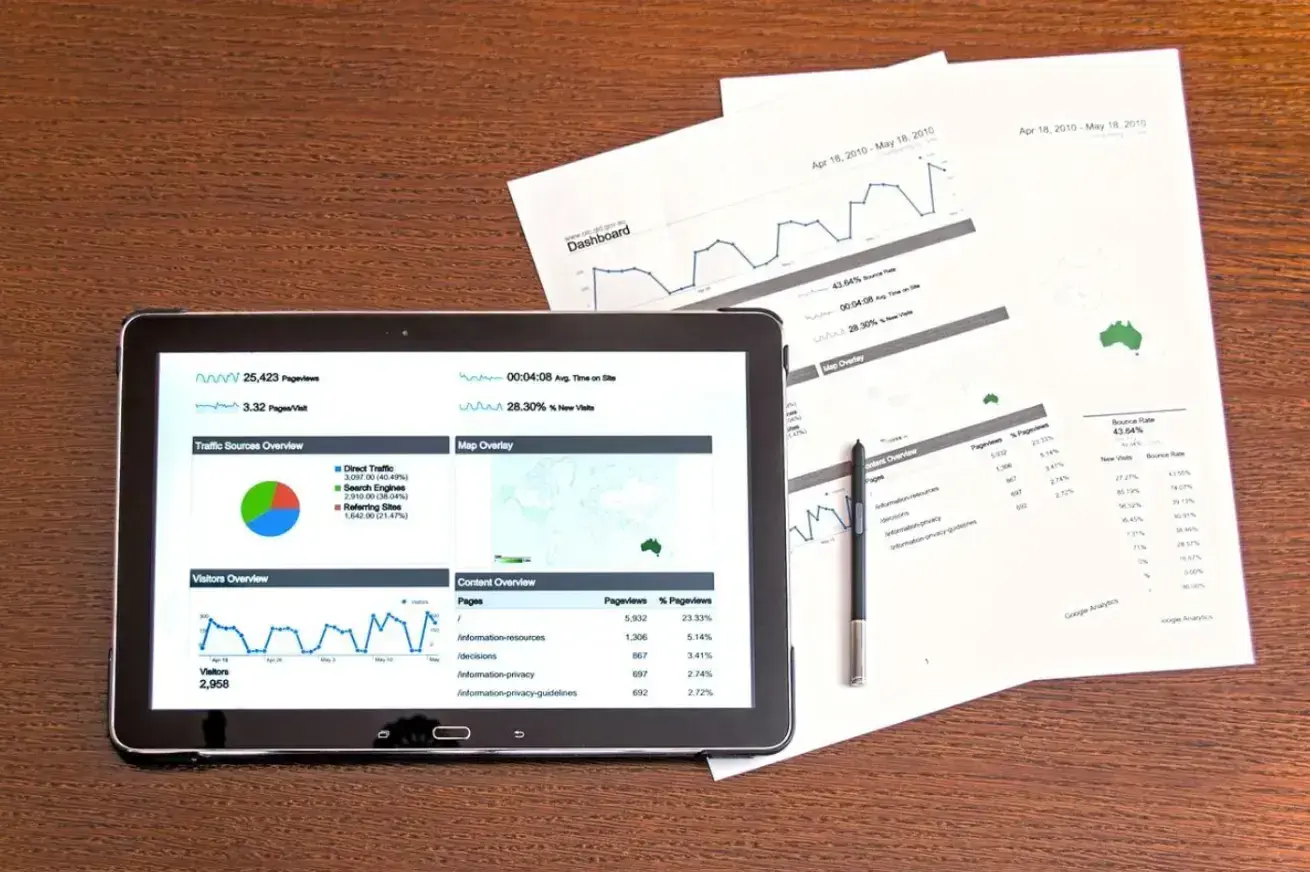Any seasoned entrepreneur can tell you that flying blind financially is a recipe for stress (and, eventually, failure). Kicking off the year with sharp financial goals is like giving your business a GPS: it keeps you on track, avoids expensive detours, and gets you closer to your dream destination.
Clear resolutions turn good intentions into actionable steps, whether trimming wasteful expenses, boosting cash flow, or finally investing in smart technology. When you’re on a tight budget, every dollar has a job, so make sure it’s working smart, not hard.
A plan won’t guarantee perfection, but it will keep you from winging it—and trust me, your future self will thank you. To get you started on the right foot, I had a chat with several small business owners who agreed to share their insights and strategies.
So, if nothing else, you’ll at least find some nuggets of wisdom throughout this guide on how to set your financial resolutions in 2025.
Reassess Your 2024 Budget

Source: Pixabay
A well-thought-out budget is the backbone of any successful business, but to stay on track, you must adjust it to current market conditions and your planned growth.
As Simon Healy, Director at Wardrobe Warehouse, puts it, "Yearly budget reviews help us identify what’s working, cut unnecessary costs, and stay focused on growth. Without them, we’d be flying blind in a competitive market."
So, as you step into 2025, let your first financial resolution be reassessing your 2024 financial plan and aligning it with your future business goals. This means performing a thorough review of your income and expenses in the year that passed.
First, identify your primary revenue sources and analyze how they performed.
Next, pinpoint areas of overspending or underutilized resources. Did certain tools, services, or campaigns deliver less value than anticipated? If so, brainstorm solutions to avoid repeating these mistakes.
Set SMART Financial Goals

Source: Pixabay
By this point, you have a clear view of 2024’s strengths and weaknesses. Based on this, you can set your financial goals for 2025. Just make sure to be SMART about it!
You can’t achieve much with a goal like “I want to increase my revenue this year.”
You need something like “I plan to increase my monthly revenue by 15% by the end of July. This extra revenue will come from launching a new product and increased marketing efforts.” This way, it’s easier to understand what you have to do and when to be successful.
I asked Jeffrey Zhou, CEO and Founder of Fig Loans, what he thinks about smart objectives, and he said that “a little extra ambitious never hurt anyone. It’s important to set realistic and achievable goals, but it’s equally important not to shy away from more ambitious targets.”
So, be smart about your objectives and consider your resources, but don’t aim too low.
Invest in Technology and Automation

Source: Pixabay
When you’re the only one leading the show (as happens for solopreneurs or small entrepreneurs), you have to wear many hats. You’re the manager, HR department, marketing director, and janitor, and you must solve all the problems.
Sure, it may be thrilling to take all the shots, but it’s also exhausting, which is why around 34% of entrepreneurs report burnout.
The good news is that technology can help. The recent rise in AI-driven tools and automation, particularly within the FinTech sector, can streamline various business operations, such as:
- Inventory Management: AI tools can predict customer demand patterns, helping reduce storage costs and minimizing the risks of being left without stock when you need it most.
- Payment Processing: Your customers will be happy if you use payment systems that recognize different methods and process payments in seconds. These tools also reduce manual errors, as they communicate with your invoicing software and other internal systems.
- Bookkeeping and Tax Preparation: Tools that take care of data entry and financial reconciliations, improve accuracy and compliance. They also free up your time so you can focus on business growth.
With so many tools now automating bookkeeping and simplifying tax prep, it’s easier than ever to move beyond traditional options. For freelancers and small business owners, exploring an alternative to QuickBooks for self employed can offer more flexibility and tailored features.
Gary Hemming, Owner and finance Director at ABC Finance, says, “When you invest in tech tools, you invest in your business’s efficiency. Automation accelerates routine tasks, allowing you to reallocate resources to more important tasks and reducing human errors, especially in financial data collection and processing.”
This is not just FinTech brands trying to sell you stuff; it’s what every small entrepreneur who took this step knows to be true.
"Integrating automation into our operations has been a game-changer. It’s allowed us to focus on growth strategies, which has boosted our revenue and efficiency." – David Speedy, General Manager at Workspace Direct.
"AI-powered tools and automation have been invaluable for our growing e-shop. They’ve allowed us to manage inventory, payments, and customer service without having to hire a large team. It’s helped us scale efficiently and stay competitive in a growing market." – Peter Čuček, Owner of Tuuli.
Explore New Revenue Streams

Source: Pixabay
"In today’s fast-paced market, standing still is the quickest path to failure. To succeed, you need to innovate, diversify, and adapt. Exploring new revenue streams has been key to keeping our business competitive and thriving." – Samo Polegek, the owner of The Most Iconic Art, shared with me.
I fully agree with his point of view. Market trends can shift from one day to the next, and you risk being left to dry if you place all your eggs in one basket. This is why one of your financial resolutions in 2025 must be about exploring new revenue streams.
The good news is that you have lots of options, such as:
- Digital products: e-books, courses, templates, and so on;
- Special subscriptions: think curated monthly boxes or exclusive memberships;
- Partnerships: pair up with complementary brands, such as co-branded campaigns or affiliate collaborations, to expand your reach and share resources.
This way, you protect your business from unexpected disruptions and position it for long-term growth in a dynamic market. Start small, experiment, and let your creativity guide you to new possibilities.
FAQs
1. How do I choose the right financial goals for my business?
It’s important to align your goals with your desire for growth. However, you must evaluate your current financial position to better understand your growth potential. Review last year’s income, expenses, and cash flow to identify areas for improvement.
2. How often should I review my financial goals and progress?
Goals are nothing without regular reviews and monitoring. Schedule monthly check-ins to assess your progress and address any challenges. Also, schedule quarterly reviews to determine whether your strategies need to be adjusted.
3. What tools can help me manage and track my financial resolutions?
Invest in tools to track cash flow and expenses and reliable accounting software (QuickBooks is a great one). For more in-depth insights, consider consulting a financial advisor or coach.
In Conclusion
Setting the right financial resolutions and following through can put your business on the map in 2025.
The strategies in this guide can help you get a head start in a competitive market, but it’s also essential that you consider your business’s unique needs.
Start small, stay consistent, and watch your efforts pay off. Here’s to a financially successful year for your business!
Author Bio
Dylan Myers is a Financial Advisor with over 20 years of experience. Dylan helps individuals and businesses achieve financial clarity and growth.



